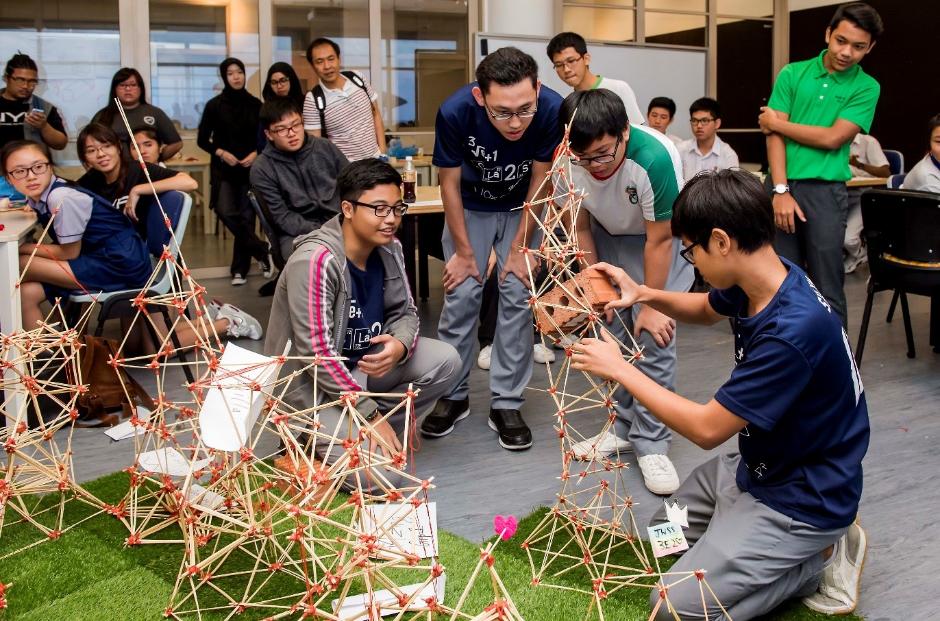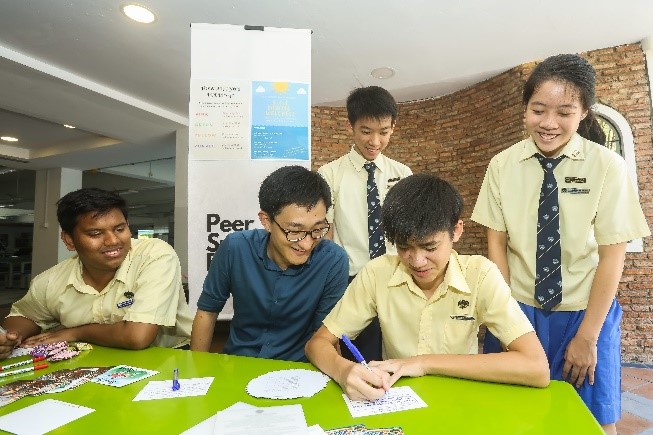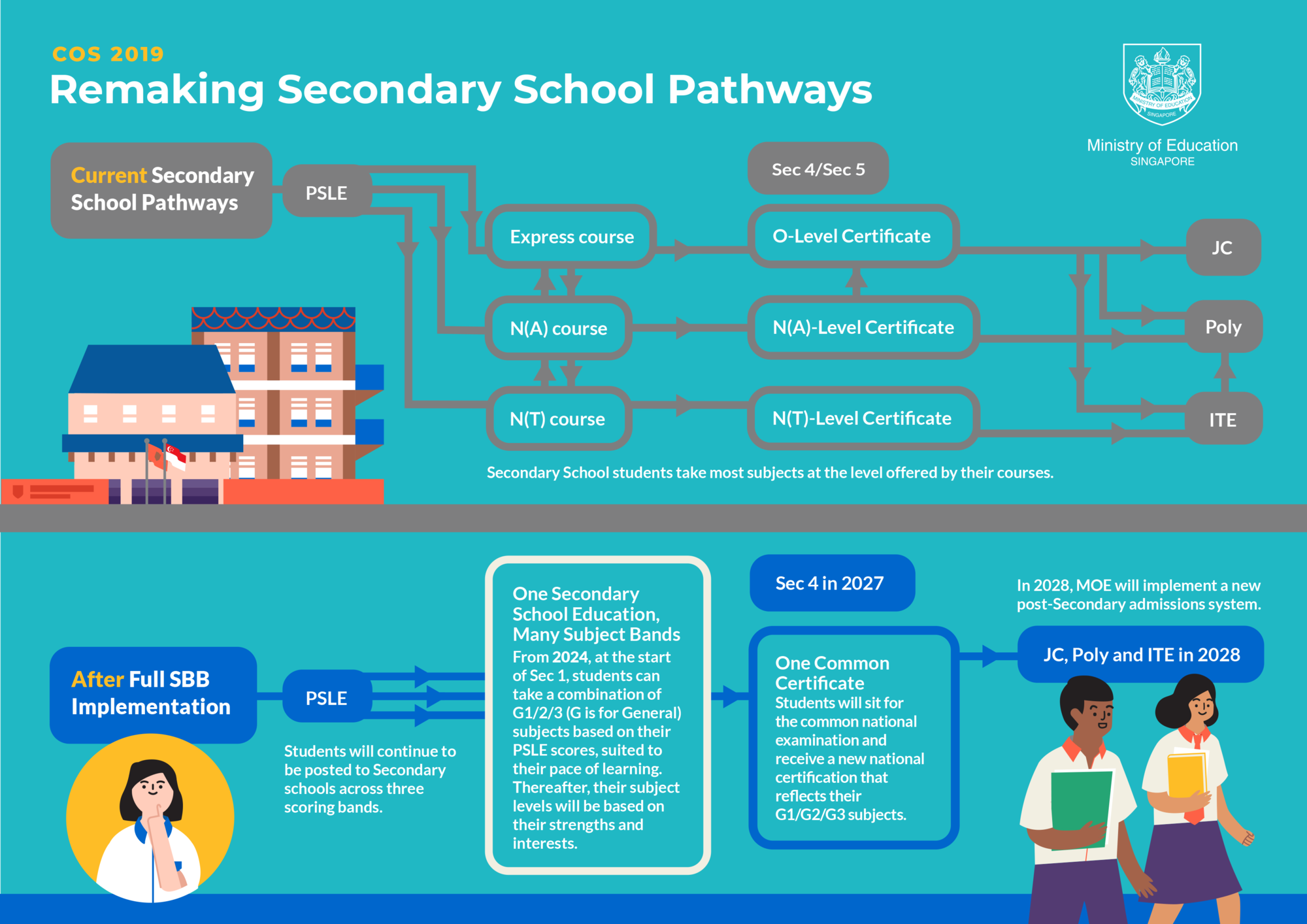There are no straight lines in nature, Spanish architect Antonio Gaudi once said, and it is quite true if you think about it. When plants grow, they bend with the sun and wind, and mountains don’t rise up as straight columns.
Straight lines are efficient. If we want to get from point A to Z in the shortest time, we draw a straight line between the two points. But most of the time, we may have to make some turns to get to our destination, especially if we want to go with the flow of nature; we need to accept that this will come with curves, pauses and detours. This may take a longer time, but the journey could be more fulfilling and enriching.
Polytechnic pathways may no longer be linear
My colleagues and I at the Ministry of Education (MOE) have been looking deeper into how we can enhance the education pathways for our polytechnic and Institute of Technical Education (ITE) students. In Singapore, about seven in 10 students in each age cohort attend a polytechnic or ITE, so the improvements we make will have a significant impact.
We talk about equipping them with knowledge and skills for employment in the immediate future while preparing them for the long haul too. The former is a fairly straight line with clear objectives; the latter is less so but equally important.
Let me give an example. Sharif and his younger brother both enrolled at a polytechnic. Sharif, who is now doing his National Service, found his course in nautical studies fairly smooth-sailing and feels confident about his university and career prospects.
His brother, on the other hand, finds the going tough and has had to repeat a few modules. Discouragement is sinking in. Sharif thinks his brother has what it takes to complete the course – however, he simply needs more time.
At a recent engagement session, organised as part of the Review of Opportunities and Pathways in Applied Education that I chair, Sharif suggested that polytechnic students could be given more leeway to learn at a pace that suits their learning needs and styles.
Such flexibility could help normalise the concept of studying – and succeeding – at a different pace, in a different form, taking a pathway that is less linear… this will entail some evolution of our courses and curricula.
This is something MOE is indeed exploring — to support students who may need more time to complete their studies, or students who wish to pursue diverse interests beyond what is taught in their courses. Such flexibility could help normalise the concept of studying – and succeeding – at a different pace, in a different form, taking a pathway that is less linear.
We may need to accept that our education pathways may not always hew to the same well-trodden paths, and this will entail some evolution of our courses and curricula. After all, the demands of the future economy call for more versatility and nimbleness from all of us. Our students may need to acquire broad-based skills, not just in school but over their careers. This will give them greater adaptability, help them take advantage of any emerging opportunities within their chosen field, or even pivot to a new role or sector.

Our students may need to acquire broad-based skills, not just in school but over their careers. This will give them greater adaptability, help them take advantage of any emerging opportunities within their chosen field, or even pivot to a new role or sector.
Building up our life skills and support networks
When it comes to preparing our students for the long haul, we are also concerned not just about career resilience but also with equipping our students with life skills and support networks to see them through life’s challenges.
These are currently woven into the curriculum, say, through teaching effective communication at presentations, resilience when tackling projects and activities, or collaborative skills during internships.
We can look at how to boost our students’ access to pastoral care through our staff and community partners, for example, especially for those without strong support networks at home.
I was heartened when Hannah, a recent polytechnic graduate, shared at another Review engagement session that more students should be encouraged to support their fellow classmates and peers, because young people are often more receptive to seek assistance from their own network of friends and seniors. Hannah walked the talk by stepping up as a Peer Supporter at her polytechnic where she championed mental health awareness and initiatives to help her fellow students in need to receive timely help.
As I listened to the views shared by the over 1,200 people who attended our over 40 engagement sessions, I found that the conversations resonated with my own belief: Let’s have more options for diverse learners with varied strengths and passions, and better support students from different family backgrounds and needs. Their feedback affirmed the direction that MOE is taking with our education pathways, to support greater diversity and broaden the definitions of success in life.
More important is that every student knows that the path they choose is a path that best suits them and their choice is recognised and valued as such. I would like to think that this brings together the best of both worlds, where straight lines intertwine with curves, pauses and detours – allowing the individual to learn for life, and learn from life, every step of the way!
A version of this commentary first appeared in Malay in Berita Mediacorp.






